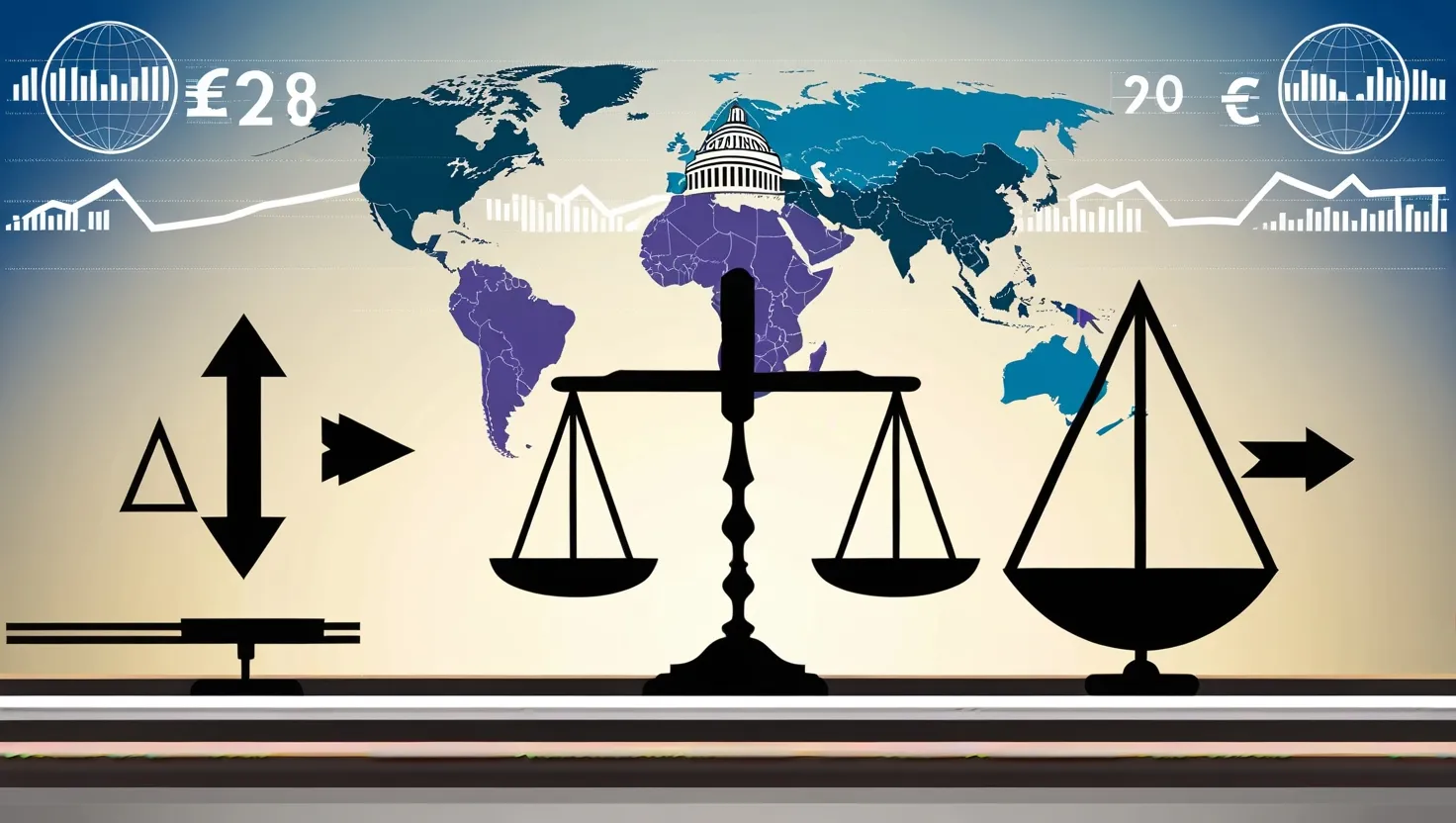Imagine a world where financial markets operate at speeds that defy conventional understanding, processing vast amounts of data in mere seconds. This is the realm of quantum finance, where the principles of quantum mechanics are transforming the complexities of global markets. To understand this revolution, let's follow the journey of Aisha, a young quant trader, as she navigates this new and exciting landscape.
Aisha's day begins like any other, but her tools are far from ordinary. She relies on quantum algorithms to optimize her portfolio management, a task that would be daunting for traditional computers. Quantum computers use qubits, which can exist in multiple states simultaneously, allowing them to process an exponential number of possibilities at once. This capability is a game-changer in financial modeling, enabling Aisha to analyze complex market behaviors and optimize investment strategies with unprecedented accuracy and speed.
One of the most significant advantages of quantum computing in finance is its ability to handle risk assessment. Traditional methods often struggle to adequately assess risk due to the inherent complexity and uncertainty of market trends. However, quantum computers can process multiple risk scenarios simultaneously, providing a more accurate evaluation and enabling organizations to make better-informed strategic decisions. For Aisha, this means she can manage risk more effectively, a critical aspect of her job that directly impacts her clients' investments.
Portfolio optimization is another area where quantum computing shines. Aisha uses quantum algorithms to integrate a large number of assets into her portfolios, accounting for each asset's volatility and other variables. This task, which would be computationally intensive for classical computers, is handled with ease by quantum machines. The result is more diversified and resilient portfolios that can respond more precisely to market conditions.
But quantum finance is not just about optimizing existing processes; it also introduces new ways of doing things. For instance, quantum cryptography offers a level of security that traditional encryption methods cannot match. Quantum cryptographic algorithms use unpredictable qubits instead of traditional binary codes, making them virtually unbreakable. This is particularly important in the financial sector, where securing digital transactions is crucial. Aisha knows that the security of her clients' data is paramount, and quantum cryptography provides her with the peace of mind she needs.
As Aisha delves deeper into the world of quantum finance, she begins to uncover the ethical dilemmas and potential market disruptions this technology brings. One of the significant concerns is the potential for increased inequality. Access to quantum computing might be limited to major players, such as global banks, leaving smaller institutions and individual investors at a disadvantage. This could exacerbate existing financial disparities and create new barriers to entry in the financial market.
Another challenge is the impact on jobs within the financial industry. Automation, driven by quantum computing and AI, could lead to the elimination of certain positions. While this might improve efficiency and reduce costs, it also raises concerns about job security and the need for workers to adapt to new technologies. Aisha reflects on how her own role might evolve and the importance of continuous learning in a rapidly changing environment.
Despite these challenges, the potential of quantum finance to democratize complex financial tools is significant. By making advanced computational power more accessible, quantum computing could enable smaller firms and individual investors to participate in markets that were previously out of their reach. This democratization could lead to a more diverse and vibrant financial ecosystem, where innovation and competition thrive.
Aisha's journey also highlights the importance of collaboration between financial institutions, technology partners, and research institutions. The development of quantum computing is a complex task that requires a long-term vision and significant investment in research and development. By working together, these entities can accelerate progress, address ethical considerations responsibly, and ensure that the benefits of quantum finance are shared equitably.
As we look to the future, it's clear that quantum finance will redefine market efficiency. Traditional computers struggle to predict market trends due to their complexity and dynamic nature. Quantum computers, however, can process complex calculations and simulations at unprecedented rates, potentially reducing the time needed for financial modeling and forecasting. This accelerated computational capacity could lead to more accurate and timely investment decisions, making markets more efficient and responsive.
However, this efficiency comes with its own set of challenges. The speed and accuracy of quantum computing could lead to new forms of market volatility. Algorithmic trading, powered by quantum algorithms, could create new patterns and anomalies that traditional systems might not be able to handle. Aisha knows that navigating these new dynamics will require a deep understanding of both the technology and the underlying market mechanisms.
In conclusion, Aisha's journey through the world of quantum finance offers a glimpse into a future where the very fabric of our financial systems might be rewoven by the principles of quantum mechanics. While this technology brings immense promise, it also presents ethical dilemmas and potential market disruptions. As we move forward, it's crucial to address these challenges responsibly and ensure that the benefits of quantum finance are shared equitably.
For Aisha and her peers, the future is both exciting and uncertain. It's a future where traditional markets meet quantum computing, blending cutting-edge science with age-old financial wisdom. As they navigate this new landscape, they are not just optimizing processes; they are redefining what is possible in the world of finance. And as they do, they are creating a more robust, innovative, and efficient financial landscape that will shape the future of global markets.






